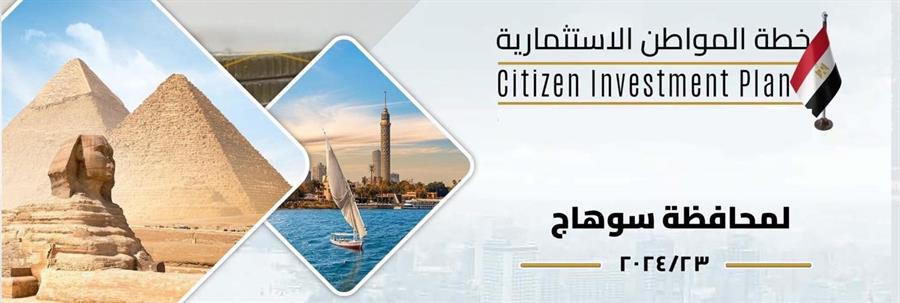Sohag Governorate Unveils Ambitious Development Plan: EGP 6.8 Billion for 489 Projects

10 April 2024
The Ministry of Planning and Economic Development presented highlights of the Citizen Investment Plan for Sohag Governorate for the year 2023/2024.
H.E. Dr. Hala El Said, Minister of Planning and Economic Development, emphasized the plan’s focus on providing special attention to Upper Egypt regions. By using a financing equation based on developmental gap indicators, the plan aims to bring about a breakthrough in specific governorates previously lacking adequate attention to maximize their resources, wealth, and developmental potential. Dr. El Said noted that Sohag Governorate will see 489 developmental projects, with public investments totaling EGP 6.8 billion for the year 2023/2024, representing a 23.6% increase compared to the previous plan.
Regarding the sectoral distribution of targeted public investments in Sohag Governorate for 2023/2024, the report indicated investments of EGP 1.9 billion for the local development sector (28%), EGP 1.6 billion for housing (23%), EGP 718.7 million for transportation (10%), EGP 643 million for higher education (9%), and EGP 583 million for health (9%). Other sectors will receive EGP 1.4 billion in investments (21%), in addition to projects under the Egyptian Rural Development Project “Decent Life”.
The report specified that the first phase of the “Decent Life” initiative in Sohag Governorate targets 180 villages, benefiting 3.1 million people. Projects include residential buildings, social units, agricultural service complexes, health units, hospitals, classrooms, schools, family development centers, rehabilitation centers, water stations, sewage projects, treatment plants, mobile network towers, youth centers, government service complexes, post offices, police stations, fire stations, canal rehabilitation, road paving, markets, parking lots, and electricity projects for natural gas network connectivity.
The plan aims to implement 290 developmental projects in local development services and 58 projects in the housing sector in Sohag Governorate. Key targets include directing EGP 1.2 billion to drinking water and sewage services, completing the Dental College building at Sohag University, and developing existing educational institutions. Additionally, the plan includes implementing 23 developmental projects in the health sector, including establishing and developing hospitals in the governorate.









